外研版(2019)必修三 Unit 2 Making a difference (3)课件(55张ppt)
文档属性
| 名称 | 外研版(2019)必修三 Unit 2 Making a difference (3)课件(55张ppt) | 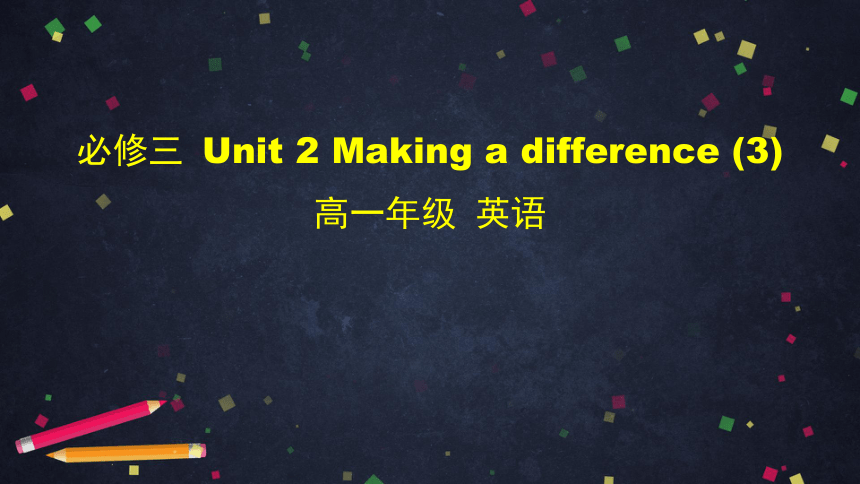 | |
| 格式 | zip | ||
| 文件大小 | 1.7MB | ||
| 资源类型 | 教案 | ||
| 版本资源 | 外研版(2019) | ||
| 科目 | 英语 | ||
| 更新时间 | 2020-06-13 14:55:18 | ||
图片预览

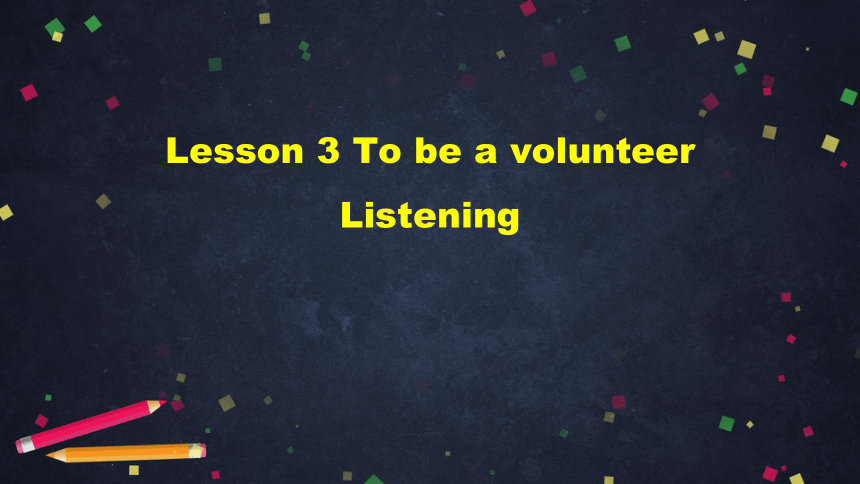
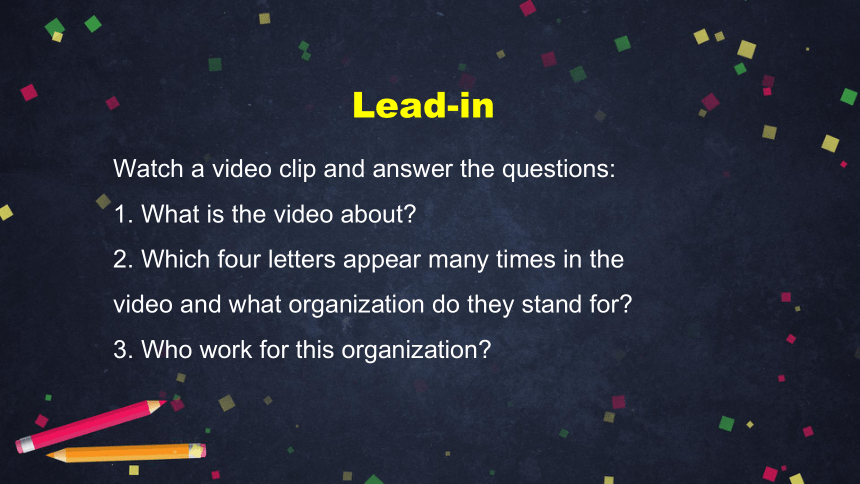

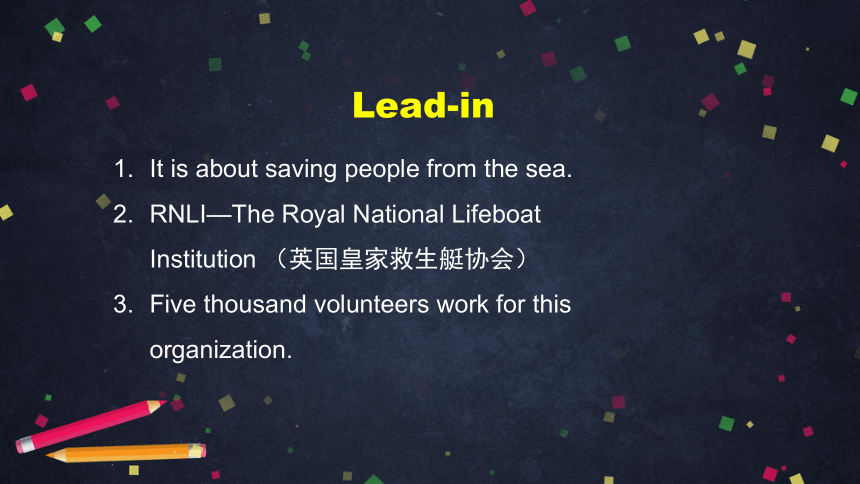
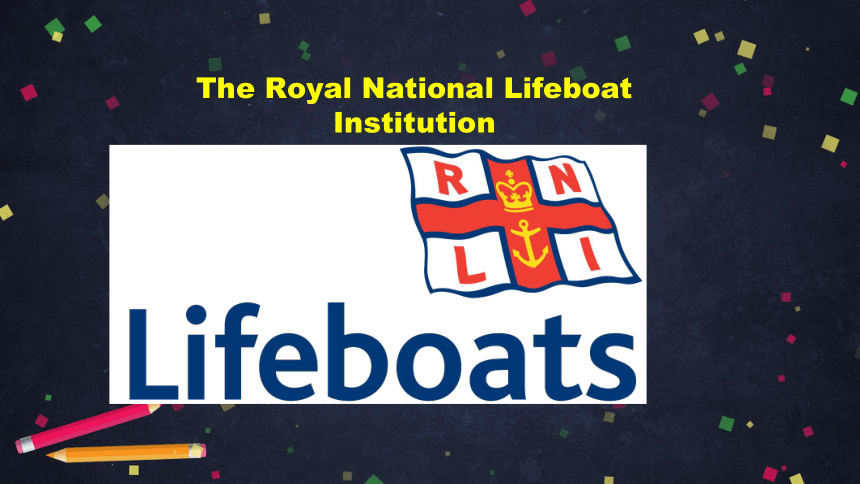
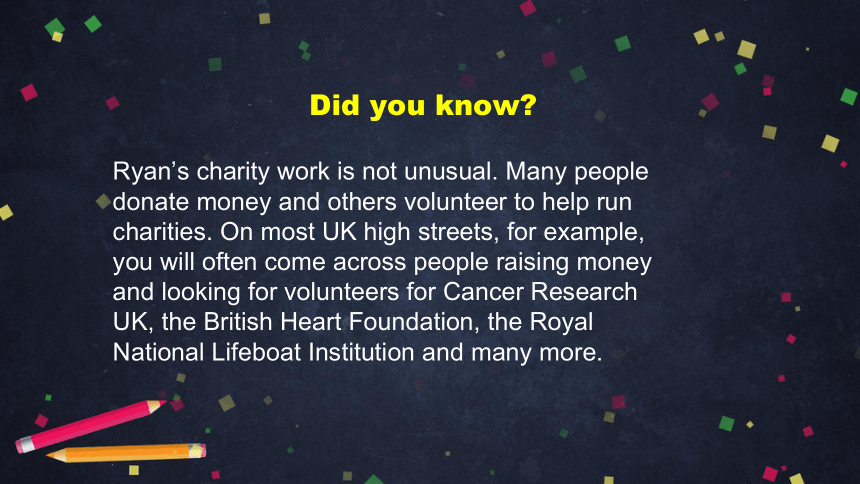
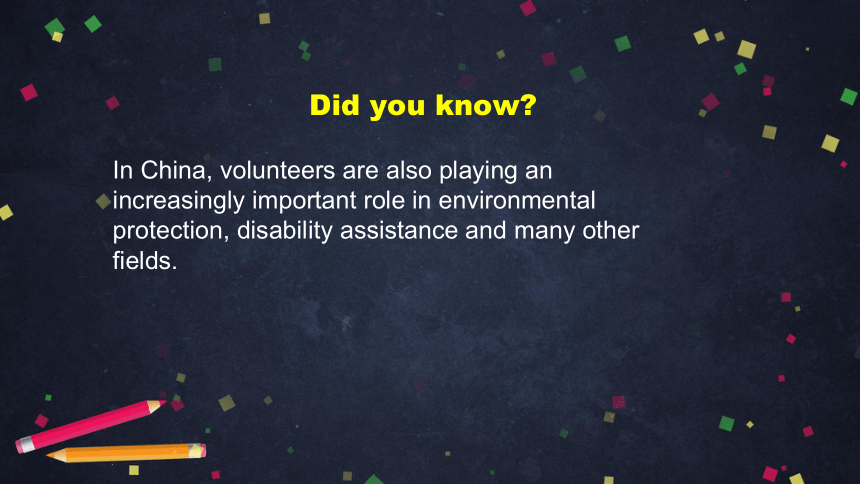

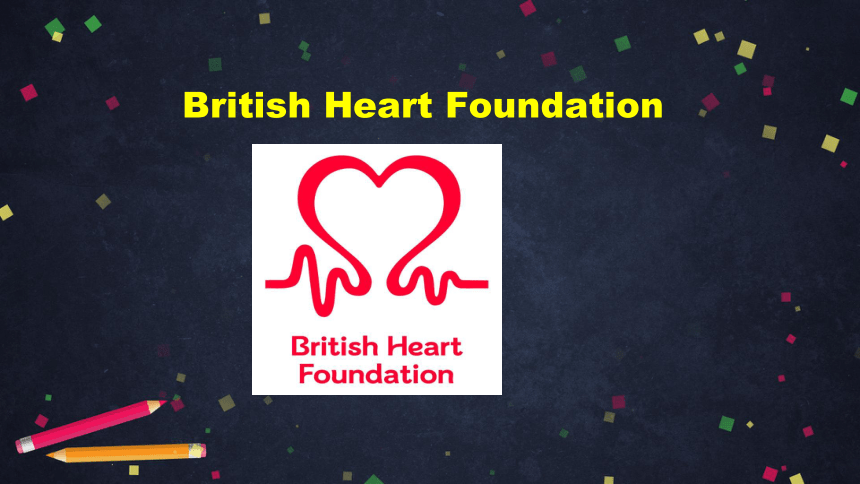

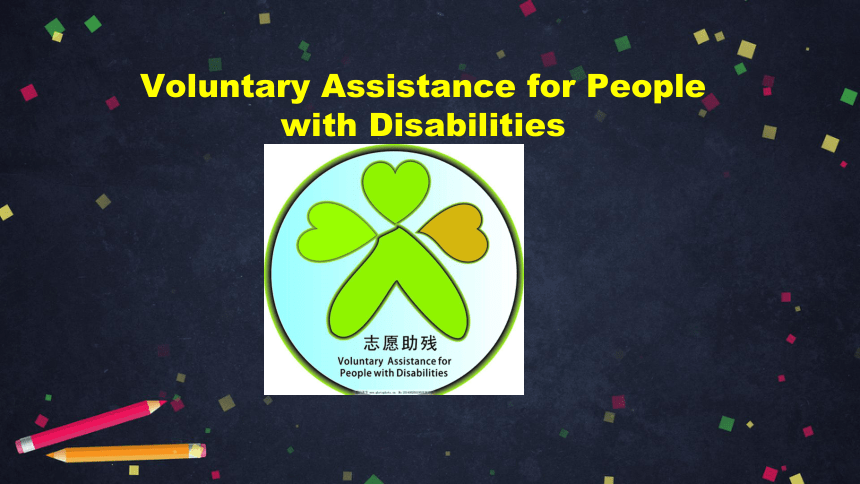
文档简介
(共55张PPT)
必修三
Unit
2
Making
a
difference
(3)
高一年级
英语
Lesson
3
To
be
a
volunteer
Listening
Lead-in
Watch
a
video
clip
and
answer
the
questions:
1.
What
is
the
video
about?
2.
Which
four
letters
appear
many
times
in
the
video
and
what
organization
do
they
stand
for?
3.
Who
work
for
this
organization?
Lead-in
Lead-in
It
is
about
saving
people
from
the
sea.
RNLI—The
Royal
National
Lifeboat
Institution
(英国皇家救生艇协会)
Five
thousand
volunteers
work
for
this
organization.
The
Royal
National
Lifeboat
Institution
Did
you
know?
Ryan’s
charity
work
is
not
unusual.
Many
people
donate
money
and
others
volunteer
to
help
run
charities.
On
most
UK
high
streets,
for
example,
you
will
often
come
across
people
raising
money
and
looking
for
volunteers
for
Cancer
Research
UK,
the
British
Heart
Foundation,
the
Royal
National
Lifeboat
Institution
and
many
more.
Did
you
know?
In
China,
volunteers
are
also
playing
an
increasingly
important
role
in
environmental
protection,
disability
assistance
and
many
other
fields.
Cancer
Research
UK
British
Heart
Foundation
Friends
of
Nature
Voluntary
Assistance
for
People
with
Disabilities
Pre-listening
If
you
want
to
become
a
volunteer,
what
do
you
need
to
think
about
or
prepare
before
applying
for
the
job?
Discuss
with
your
classmates
and
refer
to
the
form
in
Activity
8
for
help.
Pre-listening
1.
What
kind
of
voluntary
work
do
you
want
to
help
with?
2.
What
charities
are
there
in
your
area?
3.
How
can
you
help
them?
4.
What
information
do
they
need
about
you?
5.
Do
you
need
some
training
before
the
work?
6.
On
what
days
will
you
work?
…
Listening
for
main
idea
1.
Sarah
likes
2.
The
man
suggests
3.
Erica
needs
to
know
teaching
children
with
disabilities
when
Sarah
can
start
work
if
Sarah
is
suitable
for
the
work
horses
and
being
with
children
helping
out
three
times
a
week
taking
care
of
old
people
d
a
c
Listening
for
main
idea
What
Sarah
needs
to
think
about:
What
type
of
work
she
would
like
to
do;
How
often
she
can
help
out;
What
Sarah
needs
to
prepare:
Information
about
previous
experience
and
reference.
Listening
for
main
idea
Learning
to
learn
Before
making
a
phone
enquiry,
take
a
moment
to
prepare
your
questions.
Take
notes
if
necessary.
Also,
remember
that
it’s
okay
to
ask
again
when
you
think
it’s
not
clear
enough!
Listening
for
detailed
information
Personal
information:
Name:
Sarah
White
Telephone:
077
8665
3048
Preferred
field:
1
.
Listening
for
detailed
information
Voluntary
work
description:
Intended
voluntary
work:
teaching
children
with
disabilities
2
at
Peter’s
Stables
Aim:
for
the
children
to
3
and
realise
that
they
can
4
in
spite
of
their
disabilities
Role:
working
5
with
the
same
children
in
order
to
6
Listening
for
detailed
information
Additional
information
needed:
Your
previous
experience
7
A
8
for
confirmation
Available
working
hours
.
Listening
for
detailed
information
Personal
information:
Name:
Sarah
White
Telephone:
077
8665
3048
Preferred
field:
1
.
working
with
children
Listening
for
detailed
information
Voluntary
work
description:
Intended
voluntary
work:
teaching
children
with
disabilities
2
at
Peter’s
Stables
Aim:
for
the
children
to
3
and
realise
that
they
can
4
in
spite
of
their
disabilities
Role:
working
5
with
the
same
children
in
order
to
6
riding
horses
have
fun
still
enjoy
sports
one
on
one
build
a
relationship
with
them
Listening
for
detailed
information
Additional
information
needed:
Your
previous
experience
7
A
8
for
confirmation
Available
working
hours
.
reference
from
someone
who
knows
you
as
a
volunteer
Listening
for
speaking
Danny:
Winchester
Volunteer
Centre.
How
can
I
help
you?
Sarah:
Hi,
yes,
my
name
is
Sarah
White
and
I’m
interested
in
doing
some
sort
of
voluntary
work.
Could
you
tell
me
how
to
become
a
volunteer?
Danny:
Of
course.
OK,
so,
first
of
all,
you
need
to
think
about
what
type
of
work
you
would
like
to
do.
Any
ideas?
Listening
for
speaking
Sarah:
Well...
I
enjoy
working
with
children,
so
maybe
some
work
of
this
kind.
Danny:
OK.
Let’s
see.
Do
you
do
any
sports
at
all?
Sarah:
Yes,
I’ve
been
riding
since
I
was
little.
I
really
love
horses.
Danny:
Well,
they
do
riding
classes
for
kids
with
disabilities
at
Peter’s
Stables.
Perhaps
that
would
interest
you.
Listening
for
speaking
Sarah:
Oh,
that
sounds
interesting.
Can
you
tell
me
a
bit
more
about
it?
Danny:
The
most
important
thing
is
for
the
children
to
have
fun
and
learn
that
they
can
still
enjoy
sports
despite
their
disabilities.
You
work
one
on
one
with
the
same
children
each
week,
so
you
get
to
build
a
relationship
with
them.
It’s
amazing
to
see
how
their
confidence
increases
over
time.
Listening
for
speaking
Sarah:
That
sounds
just
right
for
me!
What
should
I
do
to
get
the
work?
Danny:
You
can
call
Mrs
Erica
Marshall,
director
of
the
Stables.
Her
number
is
073
8695
2054.
Sarah:
OK.
Is
there
anything
else
I
need
to
know?
Listening
for
speaking
Danny:
Once
you’ve
contacted
Mrs
Marshall,
she’ll
want
to
know
if
you
have
previous
experience
as
a
volunteer.
She’ll
probably
also
want
a
reference
from
someone
who
knows
you,
just
to
make
sure
that
you’re
the
right
sort
of
person
for
that
kind
of
work.
And
then,
of
course,
you
should
think
about
how
often
you
would
like
to
help
out.
Listening
for
speaking
Sarah:
Right.
That
all
sounds
great.
I’ll
prepare
the
information
needed
and
call
her.
Thank
you
very
much.
Useful
expressions
I’m
interested
in…
Could
you
tell
me
how
to
become
a
volunteer?
I
enjoy
working
with…
Can
you
tell
me
a
bit
more?
What
should
I
do
to
get
the
work?
Is
there
anything
else
I
need
to
know?
Useful
expressions
First
of
all,
you
need
to…
Well,
they
do…
The
most
important
thing
is…
You
can
contact…
Well,
once
you’ve
contacted…
And
then,
you
should
think
about…
Speaking
Activity
9
Work
in
pairs
and
act
out
a
telephone
enquiry
by
referring
to
clues
on
Page
81
and
84.
Speaking
Student
A—You’re
interested
in
taking
up
voluntary
work
about
environmental
protection
and
you’re
going
to
make
a
phone
enquiry
about:
?
what
kind
of
work
is
available.
?
the
responsibilities
of
the
work.
?
the
requirements
on
you.
?
the
person
to
contact.
Speaking
Student
B—You
work
at
a
volunteer
centre.
Your
job
is
to
answer
enquiries
about
voluntary
work
and
give
practical
step-by-step
advice
on
how
to
get
started.
The
voluntary
work
you
recommend
is
coastal
clean-up
at
North
Beach.
Speaking
Responsibilities:
?
collect
waste
from
the
beach
?
stop
people
from
littering
the
beach
and
the
ocean
?
record
the
waste
and
write
reports
Speaking
Requirements:
?
fill
in
the
registration
form
?
provide
a
letter
of
recommendation
?
think
about
the
time
you
want
to
help
out
Contact:
?
Mr
Brown,
Tel.
012
3481
2177
Criteria
Pronunciation
and
intonation
30’
Language
(useful
expressions)
30’
Content
40’
Overall
performance
100’
Score
Comment
Sample
B:
Beijing
Volunteer
Centre.
How
can
I
help
you?
A:
Hi,
yes,
my
name
is
Amy
and
I’m
interested
in
doing
some
sort
of
voluntary
work.
Could
you
tell
me
how
to
become
a
volunteer?
B:
Of
course.
OK,
so,
first
of
all,
you
need
to
think
about
what
type
of
work
you
would
like
to
do.
Any
ideas?
Sample
A:
Well...
I
enjoy
offering
help
in
environmental
protection.
What
kind
of
work
is
available?
B:
OK.
Let’s
see.
Well,
they
do
clean-up
at
North
Beach.
Perhaps
that
would
interest
you.
A:
Can
you
tell
me
a
bit
more
about
it?
Sample
B:
The
responsibilities
are
collecting
waste
from
the
beach
and
stopping
people
from
littering
the
beach
and
the
ocean.
And
you
also
need
to
record
the
waste
and
write
reports
at
the
end
of
the
day.
It
will
be
amazing
to
see
how
the
beach
changes
over
time
with
your
work.
A:
That
sounds
just
right
for
me!
What
should
I
do
to
get
the
work?
Sample
B:
You
can
contact
Mr.
Brown,
director
of
Coastal
Clean-up
at
North
Beach.
His
number
is
012
3481
2177.
A:
OK.
Is
there
anything
else
I
need
to
know?
Sample
B:
Once
you’ve
contacted
Mr.
Brown,
he
will
ask
you
to
fill
in
the
registration
form.
He’ll
probably
also
want
a
letter
of
recommendation
from
someone
who
knows
you,
just
to
make
sure
that
you’re
the
right
sort
of
person
for
that
kind
of
work.
And
then,
of
course,
you
should
think
about
how
often
you
would
like
to
help
out.
Sample
A:
Right.
That
all
sounds
great.
I’ll
prepare
the
information
needed
and
call
him.
Thank
you.
Speaking
Activity
10
Think
about
other
voluntary
work
you
would
like
to
be
involved
in,
and
have
a
similar
conversation.
Beijing
Charity
and
Volunteers
Federation
Friends
of
Nature
China
Small
Animal
Protection
Association
Sample
B:
Beijing
Volunteer
Centre.
How
can
I
help
you?
A:
Hi,
yes,
my
name
is
Amy
and
I’m
interested
in
doing
some
sort
of
voluntary
work.
Could
you
tell
me
how
to
become
a
volunteer?
B:
Of
course.
OK,
so,
first
of
all,
you
need
to
think
about
what
type
of
work
you
would
like
to
do.
Any
ideas?
Sample
A:
Well...
I
enjoy
working
with
animals,
so
maybe
some
work
of
this
kind.
B:
OK.
Let’s
see.
Do
you
like
cats
and
dogs?
A:
Sure.
They
are
really
cute
and
friendly
to
people.
B:
Well,
they
take
care
of
small
animals,
mainly
stray
cats
and
dogs,
at
China
Small
Animal
Protection
Association.
Perhaps
that
would
interest
you.
Sample
A:
Great!
Can
you
tell
me
a
bit
more
about
it?
B:
The
most
important
thing
is
to
protect
the
animals
from
injury
and
starvation.
You
work
in
the
same
area
each
week,
so
you
get
to
know
the
dogs
and
cats
well
and
are
able
to
keep
a
good
record
of
them.
It’s
amazing
to
see
the
cute
and
friendly
small
animals
every
time,
right?
Sample
A:
Yes!
That
sounds
just
right
for
me!
What
should
I
do
to
get
the
work?
B:
You
can
contact
the
organizers
through
Wechat
by
scanning
their
QR
code
on
their
website:
www.csapa.org.
A:
OK.
Is
there
anything
else
I
need
to
know?
Sample
B:
Once
you’ve
contacted
them,
they
will
ask
you
to
fill
in
the
registration
form
on
their
website.
And
then,
of
course,
you
should
think
about
how
often
and
in
which
area
you
would
like
to
help
out.
A:
Right.
That
all
sounds
great.
I’ll
contact
them.
Thank
you.
Summary
1.
Learn
about
British
and
Chinese
charities.
2.
Listen
to
the
telephone
enquiry
to
become
a
volunteer.
3.
Figure
out
what
to
include
in
the
phone
enquiry.
4.
Act
out
the
conversation.
5.
Make
a
new
conversation.
Homework
Option
1:
Describe
the
voluntary
work
in
the
phone
enquiry.
Option
2:
Practise
the
conversation
you
designed
after
class.
Option
3:
Think
about
another
voluntary
work
and
have
a
new
conversation
with
your
classmates.
Thanks
for
your
watching!
高一年级
英语
主讲人:刘丽欣
北京四中房山分校
必修三
Unit
2
Making
a
difference
(3)
高一年级
英语
Lesson
3
To
be
a
volunteer
Listening
Lead-in
Watch
a
video
clip
and
answer
the
questions:
1.
What
is
the
video
about?
2.
Which
four
letters
appear
many
times
in
the
video
and
what
organization
do
they
stand
for?
3.
Who
work
for
this
organization?
Lead-in
Lead-in
It
is
about
saving
people
from
the
sea.
RNLI—The
Royal
National
Lifeboat
Institution
(英国皇家救生艇协会)
Five
thousand
volunteers
work
for
this
organization.
The
Royal
National
Lifeboat
Institution
Did
you
know?
Ryan’s
charity
work
is
not
unusual.
Many
people
donate
money
and
others
volunteer
to
help
run
charities.
On
most
UK
high
streets,
for
example,
you
will
often
come
across
people
raising
money
and
looking
for
volunteers
for
Cancer
Research
UK,
the
British
Heart
Foundation,
the
Royal
National
Lifeboat
Institution
and
many
more.
Did
you
know?
In
China,
volunteers
are
also
playing
an
increasingly
important
role
in
environmental
protection,
disability
assistance
and
many
other
fields.
Cancer
Research
UK
British
Heart
Foundation
Friends
of
Nature
Voluntary
Assistance
for
People
with
Disabilities
Pre-listening
If
you
want
to
become
a
volunteer,
what
do
you
need
to
think
about
or
prepare
before
applying
for
the
job?
Discuss
with
your
classmates
and
refer
to
the
form
in
Activity
8
for
help.
Pre-listening
1.
What
kind
of
voluntary
work
do
you
want
to
help
with?
2.
What
charities
are
there
in
your
area?
3.
How
can
you
help
them?
4.
What
information
do
they
need
about
you?
5.
Do
you
need
some
training
before
the
work?
6.
On
what
days
will
you
work?
…
Listening
for
main
idea
1.
Sarah
likes
2.
The
man
suggests
3.
Erica
needs
to
know
teaching
children
with
disabilities
when
Sarah
can
start
work
if
Sarah
is
suitable
for
the
work
horses
and
being
with
children
helping
out
three
times
a
week
taking
care
of
old
people
d
a
c
Listening
for
main
idea
What
Sarah
needs
to
think
about:
What
type
of
work
she
would
like
to
do;
How
often
she
can
help
out;
What
Sarah
needs
to
prepare:
Information
about
previous
experience
and
reference.
Listening
for
main
idea
Learning
to
learn
Before
making
a
phone
enquiry,
take
a
moment
to
prepare
your
questions.
Take
notes
if
necessary.
Also,
remember
that
it’s
okay
to
ask
again
when
you
think
it’s
not
clear
enough!
Listening
for
detailed
information
Personal
information:
Name:
Sarah
White
Telephone:
077
8665
3048
Preferred
field:
1
.
Listening
for
detailed
information
Voluntary
work
description:
Intended
voluntary
work:
teaching
children
with
disabilities
2
at
Peter’s
Stables
Aim:
for
the
children
to
3
and
realise
that
they
can
4
in
spite
of
their
disabilities
Role:
working
5
with
the
same
children
in
order
to
6
Listening
for
detailed
information
Additional
information
needed:
Your
previous
experience
7
A
8
for
confirmation
Available
working
hours
.
Listening
for
detailed
information
Personal
information:
Name:
Sarah
White
Telephone:
077
8665
3048
Preferred
field:
1
.
working
with
children
Listening
for
detailed
information
Voluntary
work
description:
Intended
voluntary
work:
teaching
children
with
disabilities
2
at
Peter’s
Stables
Aim:
for
the
children
to
3
and
realise
that
they
can
4
in
spite
of
their
disabilities
Role:
working
5
with
the
same
children
in
order
to
6
riding
horses
have
fun
still
enjoy
sports
one
on
one
build
a
relationship
with
them
Listening
for
detailed
information
Additional
information
needed:
Your
previous
experience
7
A
8
for
confirmation
Available
working
hours
.
reference
from
someone
who
knows
you
as
a
volunteer
Listening
for
speaking
Danny:
Winchester
Volunteer
Centre.
How
can
I
help
you?
Sarah:
Hi,
yes,
my
name
is
Sarah
White
and
I’m
interested
in
doing
some
sort
of
voluntary
work.
Could
you
tell
me
how
to
become
a
volunteer?
Danny:
Of
course.
OK,
so,
first
of
all,
you
need
to
think
about
what
type
of
work
you
would
like
to
do.
Any
ideas?
Listening
for
speaking
Sarah:
Well...
I
enjoy
working
with
children,
so
maybe
some
work
of
this
kind.
Danny:
OK.
Let’s
see.
Do
you
do
any
sports
at
all?
Sarah:
Yes,
I’ve
been
riding
since
I
was
little.
I
really
love
horses.
Danny:
Well,
they
do
riding
classes
for
kids
with
disabilities
at
Peter’s
Stables.
Perhaps
that
would
interest
you.
Listening
for
speaking
Sarah:
Oh,
that
sounds
interesting.
Can
you
tell
me
a
bit
more
about
it?
Danny:
The
most
important
thing
is
for
the
children
to
have
fun
and
learn
that
they
can
still
enjoy
sports
despite
their
disabilities.
You
work
one
on
one
with
the
same
children
each
week,
so
you
get
to
build
a
relationship
with
them.
It’s
amazing
to
see
how
their
confidence
increases
over
time.
Listening
for
speaking
Sarah:
That
sounds
just
right
for
me!
What
should
I
do
to
get
the
work?
Danny:
You
can
call
Mrs
Erica
Marshall,
director
of
the
Stables.
Her
number
is
073
8695
2054.
Sarah:
OK.
Is
there
anything
else
I
need
to
know?
Listening
for
speaking
Danny:
Once
you’ve
contacted
Mrs
Marshall,
she’ll
want
to
know
if
you
have
previous
experience
as
a
volunteer.
She’ll
probably
also
want
a
reference
from
someone
who
knows
you,
just
to
make
sure
that
you’re
the
right
sort
of
person
for
that
kind
of
work.
And
then,
of
course,
you
should
think
about
how
often
you
would
like
to
help
out.
Listening
for
speaking
Sarah:
Right.
That
all
sounds
great.
I’ll
prepare
the
information
needed
and
call
her.
Thank
you
very
much.
Useful
expressions
I’m
interested
in…
Could
you
tell
me
how
to
become
a
volunteer?
I
enjoy
working
with…
Can
you
tell
me
a
bit
more?
What
should
I
do
to
get
the
work?
Is
there
anything
else
I
need
to
know?
Useful
expressions
First
of
all,
you
need
to…
Well,
they
do…
The
most
important
thing
is…
You
can
contact…
Well,
once
you’ve
contacted…
And
then,
you
should
think
about…
Speaking
Activity
9
Work
in
pairs
and
act
out
a
telephone
enquiry
by
referring
to
clues
on
Page
81
and
84.
Speaking
Student
A—You’re
interested
in
taking
up
voluntary
work
about
environmental
protection
and
you’re
going
to
make
a
phone
enquiry
about:
?
what
kind
of
work
is
available.
?
the
responsibilities
of
the
work.
?
the
requirements
on
you.
?
the
person
to
contact.
Speaking
Student
B—You
work
at
a
volunteer
centre.
Your
job
is
to
answer
enquiries
about
voluntary
work
and
give
practical
step-by-step
advice
on
how
to
get
started.
The
voluntary
work
you
recommend
is
coastal
clean-up
at
North
Beach.
Speaking
Responsibilities:
?
collect
waste
from
the
beach
?
stop
people
from
littering
the
beach
and
the
ocean
?
record
the
waste
and
write
reports
Speaking
Requirements:
?
fill
in
the
registration
form
?
provide
a
letter
of
recommendation
?
think
about
the
time
you
want
to
help
out
Contact:
?
Mr
Brown,
Tel.
012
3481
2177
Criteria
Pronunciation
and
intonation
30’
Language
(useful
expressions)
30’
Content
40’
Overall
performance
100’
Score
Comment
Sample
B:
Beijing
Volunteer
Centre.
How
can
I
help
you?
A:
Hi,
yes,
my
name
is
Amy
and
I’m
interested
in
doing
some
sort
of
voluntary
work.
Could
you
tell
me
how
to
become
a
volunteer?
B:
Of
course.
OK,
so,
first
of
all,
you
need
to
think
about
what
type
of
work
you
would
like
to
do.
Any
ideas?
Sample
A:
Well...
I
enjoy
offering
help
in
environmental
protection.
What
kind
of
work
is
available?
B:
OK.
Let’s
see.
Well,
they
do
clean-up
at
North
Beach.
Perhaps
that
would
interest
you.
A:
Can
you
tell
me
a
bit
more
about
it?
Sample
B:
The
responsibilities
are
collecting
waste
from
the
beach
and
stopping
people
from
littering
the
beach
and
the
ocean.
And
you
also
need
to
record
the
waste
and
write
reports
at
the
end
of
the
day.
It
will
be
amazing
to
see
how
the
beach
changes
over
time
with
your
work.
A:
That
sounds
just
right
for
me!
What
should
I
do
to
get
the
work?
Sample
B:
You
can
contact
Mr.
Brown,
director
of
Coastal
Clean-up
at
North
Beach.
His
number
is
012
3481
2177.
A:
OK.
Is
there
anything
else
I
need
to
know?
Sample
B:
Once
you’ve
contacted
Mr.
Brown,
he
will
ask
you
to
fill
in
the
registration
form.
He’ll
probably
also
want
a
letter
of
recommendation
from
someone
who
knows
you,
just
to
make
sure
that
you’re
the
right
sort
of
person
for
that
kind
of
work.
And
then,
of
course,
you
should
think
about
how
often
you
would
like
to
help
out.
Sample
A:
Right.
That
all
sounds
great.
I’ll
prepare
the
information
needed
and
call
him.
Thank
you.
Speaking
Activity
10
Think
about
other
voluntary
work
you
would
like
to
be
involved
in,
and
have
a
similar
conversation.
Beijing
Charity
and
Volunteers
Federation
Friends
of
Nature
China
Small
Animal
Protection
Association
Sample
B:
Beijing
Volunteer
Centre.
How
can
I
help
you?
A:
Hi,
yes,
my
name
is
Amy
and
I’m
interested
in
doing
some
sort
of
voluntary
work.
Could
you
tell
me
how
to
become
a
volunteer?
B:
Of
course.
OK,
so,
first
of
all,
you
need
to
think
about
what
type
of
work
you
would
like
to
do.
Any
ideas?
Sample
A:
Well...
I
enjoy
working
with
animals,
so
maybe
some
work
of
this
kind.
B:
OK.
Let’s
see.
Do
you
like
cats
and
dogs?
A:
Sure.
They
are
really
cute
and
friendly
to
people.
B:
Well,
they
take
care
of
small
animals,
mainly
stray
cats
and
dogs,
at
China
Small
Animal
Protection
Association.
Perhaps
that
would
interest
you.
Sample
A:
Great!
Can
you
tell
me
a
bit
more
about
it?
B:
The
most
important
thing
is
to
protect
the
animals
from
injury
and
starvation.
You
work
in
the
same
area
each
week,
so
you
get
to
know
the
dogs
and
cats
well
and
are
able
to
keep
a
good
record
of
them.
It’s
amazing
to
see
the
cute
and
friendly
small
animals
every
time,
right?
Sample
A:
Yes!
That
sounds
just
right
for
me!
What
should
I
do
to
get
the
work?
B:
You
can
contact
the
organizers
through
by
scanning
their
QR
code
on
their
website:
www.csapa.org.
A:
OK.
Is
there
anything
else
I
need
to
know?
Sample
B:
Once
you’ve
contacted
them,
they
will
ask
you
to
fill
in
the
registration
form
on
their
website.
And
then,
of
course,
you
should
think
about
how
often
and
in
which
area
you
would
like
to
help
out.
A:
Right.
That
all
sounds
great.
I’ll
contact
them.
Thank
you.
Summary
1.
Learn
about
British
and
Chinese
charities.
2.
Listen
to
the
telephone
enquiry
to
become
a
volunteer.
3.
Figure
out
what
to
include
in
the
phone
enquiry.
4.
Act
out
the
conversation.
5.
Make
a
new
conversation.
Homework
Option
1:
Describe
the
voluntary
work
in
the
phone
enquiry.
Option
2:
Practise
the
conversation
you
designed
after
class.
Option
3:
Think
about
another
voluntary
work
and
have
a
new
conversation
with
your
classmates.
Thanks
for
your
watching!
高一年级
英语
主讲人:刘丽欣
北京四中房山分校
